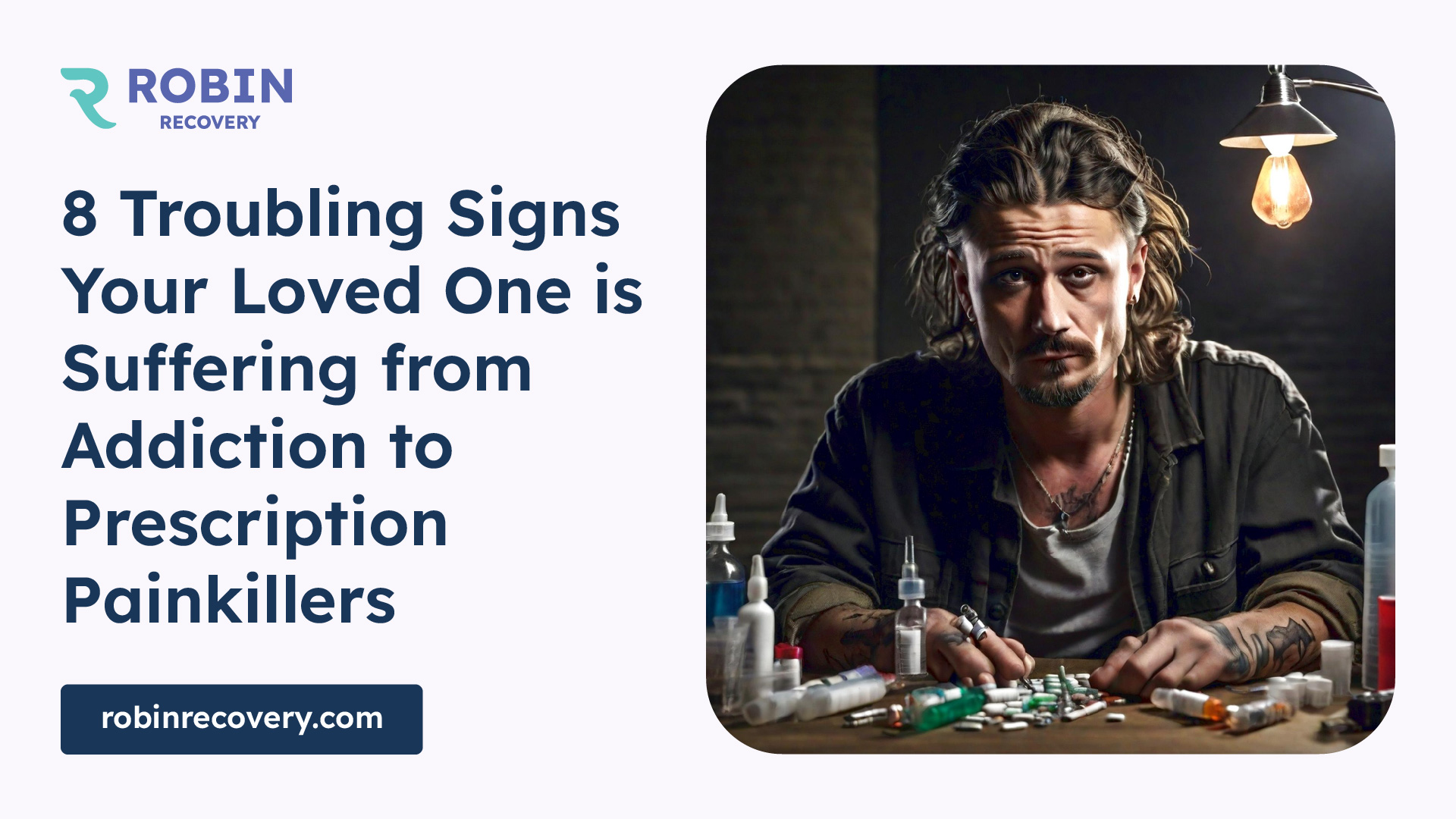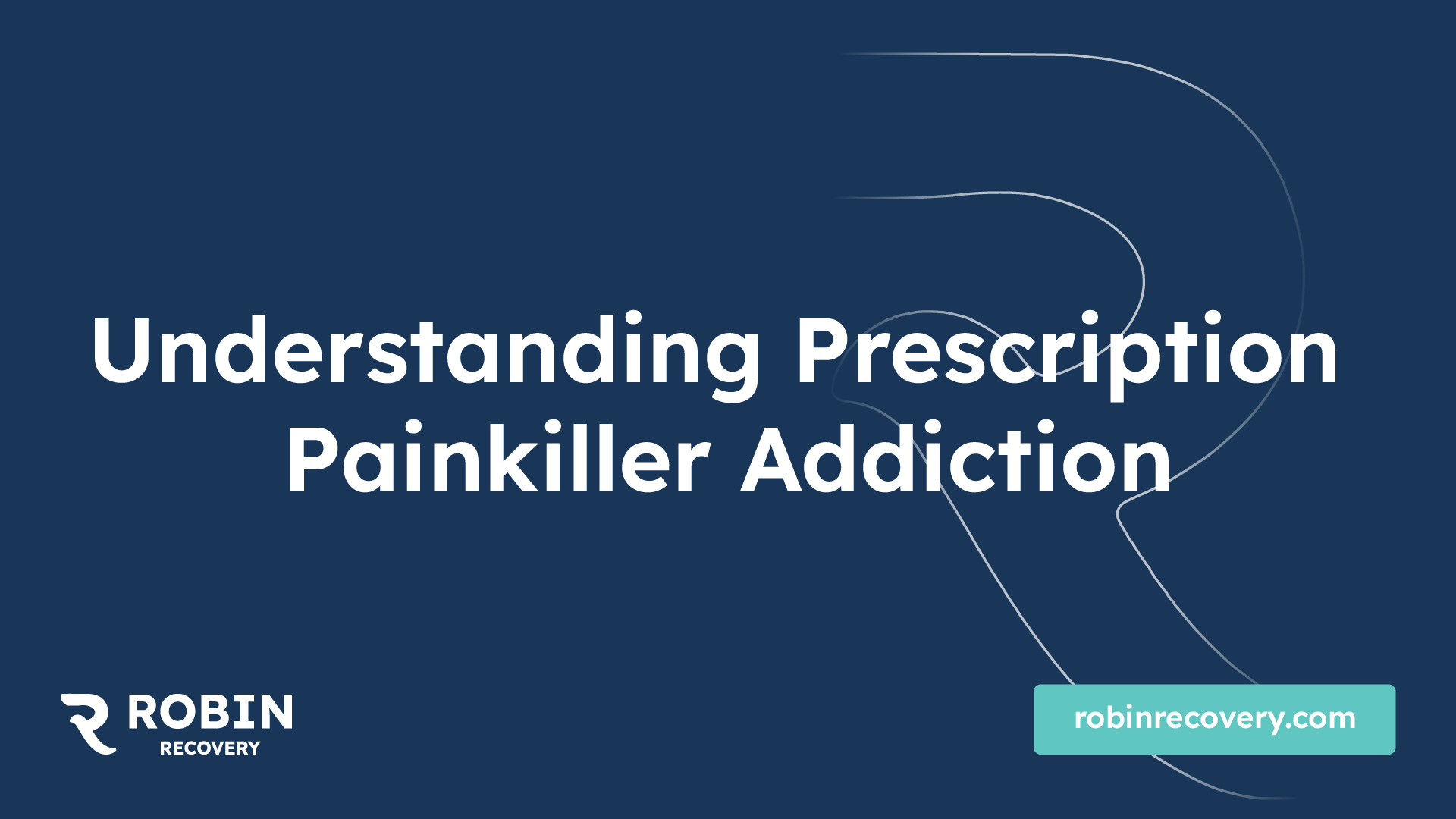8 Troubling Signs Your Loved One is Suffering from Addiction to Prescription Painkillers


Recognizing Addiction Signs
Identifying the signs of addiction to prescription painkillers in a loved one is crucial for timely intervention and support. These signs can manifest in both behavioral changes and physical symptoms.
Behavioral Changes
Recognizing these behavioral changes is essential in detecting potential addiction issues early on. For more information on identifying signs of addiction, visit our article on signs your loved one is hiding an addiction.
Physical Symptoms
These physical symptoms, especially when observed in conjunction with behavioral changes, can indicate a potential addiction to prescription painkillers. Understanding these signs is crucial for initiating conversations and seeking help for your loved one. If you suspect addiction, consider reaching out to a professional or addiction support group for guidance on how to proceed.
By being aware of these early signs of alcoholism in a loved one and recognizing the behavioral and physical indicators of addiction, you can take proactive steps to support your loved one and guide them towards recovery and treatment.

Understanding Prescription Painkiller Addiction
When delving into the complexities of prescription painkiller addiction, it is essential to comprehend the impact such addiction can have on the brain and the risk factors associated with it.
Impact on the Brain
Prescription painkillers, known as opioids, have a profound impact on the brain. These drugs bind to and activate opioid receptors located in various areas of the brain, spinal cord, and other organs in the body, particularly those involved in pain and pleasure sensations. When opioids interact with these receptors, they not only block pain signals but also trigger the release of large amounts of dopamine, a neurotransmitter associated with pleasure and reward [1].
The prolonged use of prescription opioids, even when taken as prescribed by a healthcare provider, can lead to the development of tolerance. Tolerance means that individuals may require higher doses or more frequent administration of the drug to achieve the desired effects. This tolerance can contribute to the risk of misuse and potential addiction [1].
Risk Factors
Several factors increase the susceptibility to opioid use disorder, even before the initiation of opioid medications. The risk is heightened if your loved one:
Understanding these risk factors can aid in early identification of potential addiction issues and prompt intervention to prevent escalation. It is crucial to be vigilant and supportive when observing any concerning behaviors or signs of your loved one struggling with prescription painkiller addiction.

Seeking Help for a Loved One
When a loved one is struggling with addiction to prescription painkillers, seeking help is crucial to their well-being and recovery. Understanding the available treatment options and establishing strong support systems are key steps in addressing the addiction effectively.
Treatment Options
Addressing addiction to prescription painkillers often requires a comprehensive treatment approach tailored to the individual's needs. Treatment options may include:
Support Systems
Support from family, friends, and healthcare professionals plays a vital role in the recovery process of a loved one dealing with addiction to prescription painkillers. Establishing a strong support system can help the individual navigate challenges and stay committed to their recovery journey.
By exploring treatment options and establishing robust support systems, loved ones can play a pivotal role in helping individuals overcome addiction to prescription painkillers and embark on a path to long-term recovery and well-being.
Preventing Opioid Misuse
In the midst of the growing concern surrounding addiction to prescription painkillers in the United States, it is imperative to focus on preventing opioid misuse. Education and awareness play a significant role in addressing this issue, along with effective crisis management strategies.
Education and Awareness
According to Mayo Clinic, educating individuals about the potential dangers of opioid misuse is crucial in combating the opioid epidemic. By increasing awareness about the risks associated with prescription painkillers and the potential development of substance use disorders, individuals can make more informed decisions regarding their health and well-being.
Educational initiatives should focus on the proper use of prescription opioids, the risk factors for addiction, and the signs of opioid misuse. Providing clear and accessible information to the general public can help individuals recognize the early signs of addiction in themselves or their loved ones, leading to early intervention and support.
Crisis Management
In cases where opioid misuse has already taken hold, effective crisis management strategies are essential. If drug use is spiraling out of control or causing significant problems, seeking help from healthcare providers, mental health professionals, or support groups is crucial for increasing the chances of long-term recovery from addiction to prescription painkillers [3].
Crisis management involves providing immediate support and intervention to address the urgent needs of individuals struggling with opioid addiction. This may include connecting them with appropriate treatment facilities, mental health services, or addiction support groups. Creating a network of resources and accessible pathways to help can make a significant difference in the recovery journey of those affected by opioid misuse.
By focusing on education and awareness initiatives and implementing effective crisis management strategies, communities can work together to prevent opioid misuse and support those affected by addiction to prescription painkillers. Collaborative efforts from healthcare professionals, policymakers, and community organizations are essential in addressing the opioid epidemic and promoting a healthier and safer environment for all.
Navigating Opioid Addiction Effects
When a loved one is struggling with addiction to prescription painkillers, it's essential to understand the potential long-term consequences and overdose risks associated with opioid misuse.
Long-Term Consequences
According to the National Institute on Drug Abuse, long-term use of prescription opioids, even when taken as prescribed by a doctor, can lead to the development of tolerance. This means that over time, individuals may require higher or more frequent doses of the drug to achieve the desired effects. Prolonged opioid use can also result in physical dependence and the risk of developing a substance use disorder, ranging from mild to severe, with addiction being the most severe form.
The impact of long-term opioid use extends beyond physical dependence. It can have profound effects on mental health, relationships, employment, and overall quality of life. Individuals may struggle with cognitive impairments, mood disturbances, and challenges in daily functioning. The journey to recovery from opioid addiction can be arduous, requiring comprehensive support and treatment.
Overdose Risks
One of the most alarming consequences of opioid addiction is the heightened risk of overdose. Opioid misuse can lead to slowed breathing, a condition known as hypoxia, where insufficient oxygen reaches the brain. This can result in short- and long-term psychological and neurological effects, including coma, permanent brain damage, or even death, as highlighted by the National Institute on Drug Abuse.
Every day, a staggering number of individuals in the U.S. lose their lives to opioid-related overdoses. According to the Mayo Clinic, 78 people in the U.S. die from opioid-related overdoses. This devastating statistic underscores the critical importance of recognizing the signs of opioid addiction, seeking help promptly, and implementing preventive measures to avoid tragic outcomes.
Navigating the effects of opioid addiction involves addressing both the immediate risks of overdose and the long-term consequences of prolonged opioid use. By understanding these risks, seeking appropriate support and treatment, and fostering a supportive environment for recovery, individuals can take proactive steps to combat the devastating impact of opioid addiction on their loved ones.
Supporting Recovery
When a loved one is on the path to recovery from addiction to prescription painkillers, it is vital to provide them with the necessary support to ensure a successful journey. Two key aspects of this support are monitoring their treatment progress and implementing strategies for relapse prevention.
Treatment Progress
Tracking the treatment progress of a loved one undergoing recovery from prescription painkiller addiction is crucial for gauging their overall well-being and response to interventions. Regular assessments by healthcare providers, mental health professionals, or support groups can provide valuable insights into the effectiveness of the treatment plan. According to the Mayo Clinic, individuals struggling with addiction to prescription painkillers may require physician-prescribed temporary or long-term drug substitution during treatment.
Monitoring treatment progress involves evaluating various aspects, including:
Aspect of Treatment ProgressDescriptionPhysical HealthAssessing physical well-being and addressing any medication side effects or withdrawal symptoms.Mental HealthMonitoring emotional stability and coping mechanisms to manage triggers and stressors.Behavioral ChangesObserving changes in behavior patterns and adherence to therapy and support programs.Social SupportEnsuring the availability of a supportive network of family and friends to encourage recovery.
Regular communication with healthcare providers and active involvement in therapy sessions can help track the progress of your loved one's treatment and make necessary adjustments to support their recovery journey effectively.
Relapse Prevention
Relapse prevention strategies play a pivotal role in supporting a loved one's recovery from prescription painkiller addiction. Understanding the triggers and risk factors that could lead to a relapse is essential for developing a comprehensive prevention plan. The National Institute on Drug Abuse highlights that repeated misuse of prescription opioids can result in a substance use disorder (SUD), with addiction being the most severe form.
To assist in relapse prevention, consider the following strategies:
By actively participating in their recovery journey, offering unwavering support, and implementing effective relapse prevention strategies, you can significantly enhance the chances of long-term recovery and overall well-being for your loved one battling addiction to prescription painkillers.
References
[2]:
[3]:
